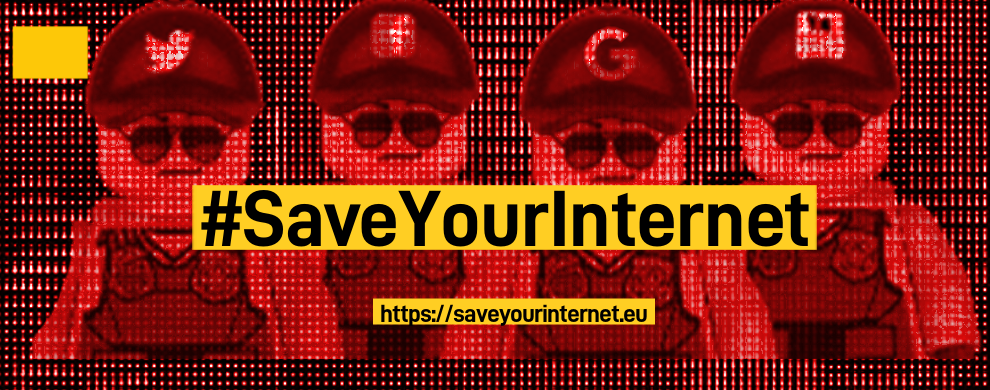
On 12 September, the European Parliament adopted changes to the draft Copyright Directive, which is a huge overturn of the Parliament’s previous position on the text which did not pass the vote in July. Negotiations of the Parliament and the Council of the European Union are to come, with mediation by the European Commission, and the final step is the vote on the negotiated text of the Directive in the European Parliament, which is expected in January next year.
Articles 11 and 13, which would mean the introduction of upload filters and “link tax”, remained in the current draft of the Directive. If this version is adopted, the Directive, based on Article 13 would practically make internet platforms, expect the smallest ones, liable for copyright infringement of their users’ uploads. In practice, these companies would be forced to install technical filters, which often mistake legal content (parody, satire) for something that infringes copyright, says Julia Reda, Member of the European Parliament for Pirate Party Germany.
“Negotiations will start between the Parliament and the EU Council: a proposal that coerces internet companies into monitoring, filtering and blocking our uploads versus one that more explicitly forces internet companies into monitoring, filtering and blocking our uploads. The result will be a cocktail of both poisons, to be put to a final vote just a few short months before the 2019 European Parliament elections”, said Diego Naranjo, Senior Policy Analyst at European Digital Rights (EDRi).
Regarding Article 11, it seems its basic purpose is to contribute to the revenue of media organisations with a “link tax”, so that they would keep authorship rights which would give them exclusive rights to monetise that content, which is currently not the case. Article 11 would only allow sharing “individual words” of media articles without a fee, even in hyperlinks. This approach still needs to be considered because there are many possible challenges for implementation. A similar law was adopted in Germany and its effects did not increase revenue of publishers and media organisations – it only made the situation more complicated as the law is hard to interpret, explained Julia Reda.
In recent years, there have been attempts to introduce internet blocking and filtering in Serbia, which were luckily unsuccessful. The Administration for Games of Chance appeared as the possible censor, first in 2012 when it sent a letter to Serbian internet service providers (ISP) to urgently block access to foreign gambling websites which didn’t have a licence issued by the Administration. ISPs were threatened with legal sanctions, primarily with the criminal liability for illegally organising of games of chance, if they do not comply and block the websites. A similar case happened two years later when an ISP received a letter, this time from the Tax Administration, also with the demand to block foreign gambling websites.
The most serious attempt to legally introduce filtering of internet content happened in late 2014, when the proposed amendments to the Law on Games of Chance contained a provision which would force all ISPs in Serbia to block foreign websites which did not have a licence issued by the Administration for Games of Chance. After reactions by SHARE Foundation and civil society, the controversial proposal was pulled from legislative procedure.
To see why we consider copyright important in the digital age, have a look at our video below.
